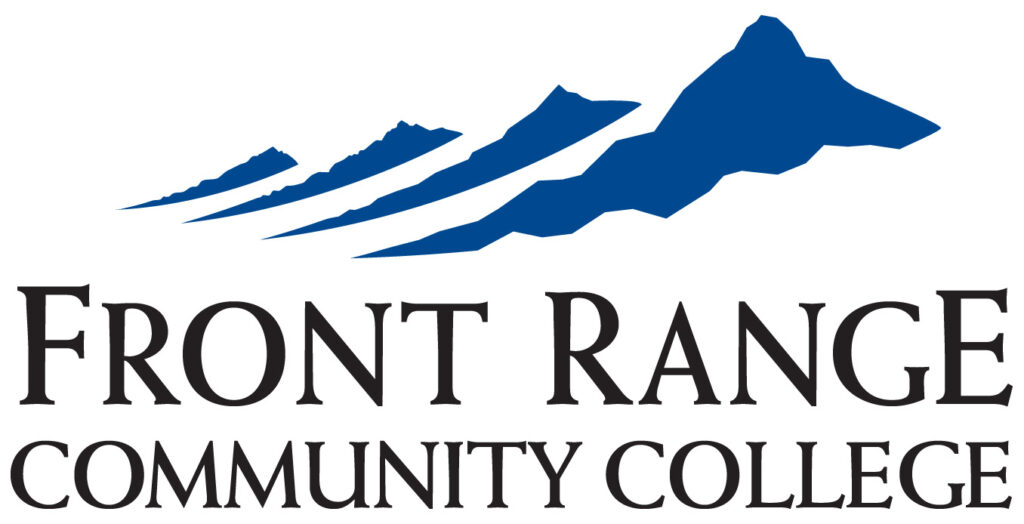
January 15, 2024
UPDATE: The March/outdoor portion of the celebration is CANCELLED due to extreme temperatures.
Day of Service and the Program at the Lincoln Center will still continue. For full details, see under March (Cancelled) and Celebration Event (Ongoing).
Please tag us on social media using #FOCOMLK2024
for questions about the event contact Duan.Ruff@colostate.edu
Due to the expected extremely cold temperatures, the March portion of the MLK Community Celebration will not happen. The Day of Service will happen 8am – 10am as planned, and the program at the Lincoln Center will happen at 12:30pm as planned. The march will be replaced with community mingling at the Lincoln Center from 10:30am – 12noon. There will be free breakfast and coffee for all who attend the community mingling.
Updated Schedule
8:00am – 10:00am:
- Day of Service @ Lincoln Center Canyon West Ballroom
10:30am – 12:00pm:
- Community Mingling and Continental Breakfast/Coffee @ Lincoln Center Columbine Ballroom and Canyon West Ballroom
12:30pm:
- MLK Program to start @ Lincoln Center Performance Hall
There will be no outdoor activities associated with the MLK Celebration this year.
Dignitaries that are speaking please make note that the start time of the program is now 12:30pm and not when the march ends.
We ask that those who volunteered for the march come to the Lincoln Center at their assigned time to assist with community mingling and any needs at the Lincoln Center.
March Leaders we will be introducing you at the Lincoln Center within the program. We ask that you attend the program and be recognized.
Student performers and emcee please arrive at the Lincoln Center at 10:30am as originally planned.
Thank you for your understanding!
Following the Day of Service and Continental Breakfast, we will gather for our annual community celebration. This year we are hosting, ” Ira Knight Presents: From Myth to Man…”
- Welcomes from CSU President, Front Range Community College President, Poudre School District Superintendent, and City of Fort Collins Mayor
- March Leader Acknowledgement
- Student Performances
- Ira Knight one-man play & audience Q&A
- Closing
There are multiple volunteer opportunities for the celebration and march that will be needed in several locations:
- MLK Day of Service- Sorting items for packages at the Lincoln Center 8:00am – 10:00am
- MLK Program & Keynote- Event assistance prior to the march at the CSU Oval and Program at the Lincoln Center, both starting at 10:00am
- MLK March- Trash collection following the march starting at CSU Oval no later than 11:00am
For more information and to sign up, please go here.
This year we are continuing our partnership with The Homeward Alliance (previously, Project Homeless Gear) to
continue the spirit of recognizing Dr. Martin Luther King Jr. and his legacy of always putting his people and their needs
before his own. We are asking for donations of clean, slightly used clothing items. Specifically, we would like to collect
jeans, sweaters, sweatshirts, hoodies, winter hats, scarves, gloves/mittens, and/or new winter socks. The donated items
will be sorted for distribution during our annual Dr. Martin Luther King Jr. Celebration held on Monday, January 15,
2024.
We ask that you consider donating to this cause and or join us in our efforts to serve the Fort Collins community,
by putting a collection box out in your location. Currently, there are drop-off locations at the Poudre Libraries.
We are hoping to have all items collected by Wednesday, January 10,
2024.
To honor your time and effort, we will come to you to pick up items when needed. When your box reaches capacity please reach out to The BIPOC Alliance at admin@bipocalliance.org
Lucrecia Medrano- Lucrecia is an exemplary example of a highly effective community leader. Lucrecia actively listens to the community and is instrumental in establishing purposeful peer-to-peer support environments for individuals across Larimer County. While she offers her support to all community members seeking assistance, we see her emphasis on Black, Indigenous, People of Color community members, incarcerated individuals, people struggling with addiction, and youth, rooted in indigenous healing practices.
Kendall Minor- Kendall is an important leader and role model for the City of Fort Collins staff and the wider community. He can also claim a direct connection to the work of Dr. King. Kendall’s parents were civil rights activists in Selma, Alabama in the 1960s and participated in actions led by Dr. King. Kendall was raised in Selma and is now on the Executive Leadership Team for the City as our Utilities Executive Director.
Xochil Arellano- Over the past eight years at Poudre Libraries, Xochil has unwaveringly championed diversity, equity, and inclusion for both colleagues and customers. Her colleagues admire her for her remarkable ability to initiate meaningful conversations and share personal stories that inspire growth in others. Xochil approaches every part of her work through the lens of creating access and building belonging within our community.
Bridgette Johnson- Bridgette currently serves as the Assistant Vice President for Inclusive Excellence at CSU. She has devoted 15 years to the institution serving as a mentor, educator, and advocate for countless students and staff through a variety of programs and services. She has been devoted to specifically serving racially minoritized students through programming and systematically changing policies and procedures on campus. This march leader nomination is long overdue as Bridgette has typically been on the planning side of this event. Now that she is in a new role, the CSU staff have been afforded the opportunity to FINALLY nominate and recognize Bridgette for her work and dedication to this institution and this event. There is nobody we’d rather have to lead the march on behalf of CSU, than Bridgette Johnson.
Tondra Gaspard- Tondra is a resilient and hard-working student; she fills the room of light as soon as she walks in. Her resilience and dedication are so admirable. She is persistent and knows how to pursue her goals. She is a person that does not give up and tries hard until she makes things happen. Tondra came in and is working on a project to create a Black Student Union where students of color can come together and support one another while they are in the community college setting.
Kendall Brandon & Kaleena Molina-Perez. Kendall has worked hard in his life to become a teacher. He started as an in-substitute at Blevins. He proved himself in this role so much so that people at Blevins strongly advocated for him to pursue a teaching license. His principal has recommended him to pursue his administrative license because of his ability to positively influence students and staff. Kendall is and will continue to be an impactful educator. He is also a role model for students who cannot often see themselves in their teachers and this impacts their mental health and belonging in only positive ways.
Kaleena embodies the activism, passion, sense of social justice, and leadership, that Dr. King imbued in those who continue to strive to make sure all people have equal access to everything. From starting the Student Equity Club at Fort Collins High School, to making impromptu speeches in class about it educating peers and teachers, Kaleena is the ONE who should lead the MLK march. At 17 years of age, she has done more for the movement than most do in a lifetime. You should at least talk to her; her breadth of knowledge and Ghandi-like demeanor are impressive. You will see!
Congratulations again and thank you sincerely for being YOU!
In collaboration with Colorado State University and other community partners, the City of Fort Collins is hosting a citywide candlelight vigil in honor of Martin Luther King, Jr. Day on Monday, January 15, 2024. The City’s Neighborhood Services Department invites neighbors across Fort Collins to set battery-powered, tea light luminaries along sidewalks and driveways as an act of remembrance and solidarity with the work of Dr. King, past civil rights leaders, and those who continue to fight for social justice today.
These small lights throughout our city seek to honor the words of Dr. King when he said, “Darkness cannot drive out darkness; only light can do that. Hate cannot drive out hate; only love can do that.”
To request luminary materials for your home or business to participate in the vigil, please fill out the form at this link. Please note that supplies are limited.
After submitting your request, you can pick up your luminary materials at any of the following locations and time:
- Harmony Library | January 10 (Wednesday) from 12 – 2 p.m.
- City Hall | January 11 (Thursday) from 1 – 4 p.m.
- Old Town Library | January 12 (Friday) from 11 a.m. – 1 p.m.
- Council Tree Library | January 13 (Saturday) from 4:30 – 7:30 p.m.
- 281 N. College Ave. | January 14 (Sunday) from 3 – 6 p.m.
If you would like to purchase your own materials similar to those provided by the City for the celebration, you will need white paper lunch bags and flameless/battery-powered tea lights, which can be obtained locally at grocery stores or online
Book Displays – each library will feature lobby displays of books by and about MLK and those inspired by his work in civil rights and social justice.
Information about the Proclamation can be found HERE. The Proclamation will be read prior to the march at the CSU Oval
Explore sites in Fort Collins that help tell the story of Black/African Americans in the city from the 1880s through the 1970s. Great for a virtual tour from home, or a socially-distanced walk, bike, or drive around Old Town Fort Collins.
or copy link: https://www.fcgov.com/historicpreservation/blackfortcollins
The Clay family was the most prominent, long-standing Black family in early Fort Collins history, and they helped build what became a small but thriving Black community in this neighborhood. The Clays used to own a house that doubled as a church at 321 Maple Street, just east of here, that was torn down in the
1970s for the new City Hall complex.
Charley Clay arrived in Colorado in 1864 as a cook accompanying a military detachment. By 1882, Clay moved to Fort Collins with his wife Anna and worked as a caterer and cook.
The Clay home was the center of Black social life in Larimer County during
the early 1900s. Out of his home at 317 Maple Street, Charley Clay ran the Colored Mission, which became a Zion Baptist Church congregation, and ministered to Black families throughout the region. His son, Charles Clay, Jr., established a home next door at 321 Maple. The Clays hosted
visitors, entertainers, meetings, and important social gatherings, such as the local chapter of the Paul Laurence Dunbar Literary Society, a national Black organization that discussed current social and political issues.
The family were also known among the City’s earliest public servants.
Charley, Sr. worked for the city as the “scavenger,” removing disposed items and trash that accumulated on public streets. William Clay served on the volunteer fire department in the 1890s.
…………………………………
Hattie McDaniels was the first Black American to win an Academy Award for her film career, and helped end the practice of housing segregation in the United States.
Hattie’s parents, Henry and Susan McDaniel, both enslaved at birth, were among the early wave of “Exoduster”
Black migrants who moved from the Jim Crow South to Kansas to seek greater freedom and opportunities in the 1870s. The McDaniels later moved from Wichita to Denver, and for a brief time in the early 1900s lived in Fort Collins at 317 Cherry Street.
Both Henry and Susan were gospel singers and
several of their children grew up to be talented performers. Hattie rose to fame as a radio performer on Denver’s KOA station before moving on to pursue work in vaudeville and eventually a successful Hollywood film career. She is most remembered for being the first Black American
to win an Academy Award for her 1939 role in Gone with the Wind.
Hattie is also recognized for her civil rights activism as a participant in the groundbreaking 1945 “Sugar Hill” lawsuit that ended restrictive racial covenants in her Los Angeles neighborhood.
…………………………………
Mattie Lyle challenged discrimination in a movie theater in 1939, winning her case just a decade after the peak of Ku Klux Klan activity in Fort Collins. For most of her life in Fort Collins, her and her family lived here at 312 N. Meldrum Street.
In 1925, they gained new neighbors at 310 N.
Meldrum, William and Mattie Lyle, a young couple from Kansas, moved to Fort Collins in 1925, first moving into a small house at 310 N Meldrum. William and Mattie held teaching degrees but nonetheless worked as janitors while they lived in Fort Collins. In 1932, the Lyle family (William, Mattie, and
daughter Joyce) moved into the property at 312 N. Meldrum.
In 1939, while they lived here, Mattie visited the newly opened State Theater at 153 N. College Avenue with her family and was not provided full access to the facility. With supporting testimony from her husband,
daughter, and a friend, she successful sued the theater owner, L.C. Snyder, for discrimination and a jury awarded her damages.
Mattie’s decision to pursue justice through the legal system is notable in light of her family history: her great-great uncle was Bird Gee, took a
discrimination case against a Kansas hotel to the United States Supreme Court in 1883. She was also a cousin to Loren Miller, the well-known civil rights attorney who represented Hattie McDaniel and others in the 1945 “Sugar Hill” restrictive covenants lawsuit.
…………………………………
John Mosley was a star football athlete at Colorado Agricultural College (now Colorado State University) and a Tuskegee Airman, serving in the Army Air Corps during World War II after he graduated. While attending CAC, Mosley first lived at a house at 421 Smith Street before moving to
a segregated boarding house at 238 North Meldrum Street that housed all ten of CAC’s Black students at the time.
Mosley was a Denver native and attended Manual High School where he was a star athlete. That compelled him to attend the Colorado Agricultural
College where he also played football, being the only Black player in the entire Mountain State Conference at the time.
He graduated in 1943 from the veterinary medicine program and was drafted into the military, being assigned to the artillery despite holding a private pilot’s license. He eventually
was able to get transferred to the Tuskegee Army Air Force Base in Alabama, where he graduated from the flight school in 1944 and served for the remainder of World War II as a 2nd Lieutenant. He remained in the Air Force Reserves and was recalled for combat missions in Korea and
Vietnam before retiring in 1970.
Alongside his military service, Mosley and his wife Edna were both advocates for African Americans in the Denver metro area and beyond, focusing on public health and anti-discrimination.
…………………………………
Virgil Thomas lived at this address in the late-1930s and is believed to be the first Black graduate of Fort Collins High School in the class of 1941. The red house to the north is a City Landmark – the first to protect Black History in Fort Collins.
Virgil’s parents, John and Mamie Thomas,
resided at this property from approximately 1933 to 1940 before moving, and later purchasing, the house down the street at 316 Cherry. During Virgil’s time at Fort Collins High School in the late-1930s, most Black families in the city lived in this neighborhood near the intersection of Meldrum
and Cherry Streets. Through a combination of social networks among Black families, and housing segregation imposed by White realtors and property owners, this neighborhood remained where most Fort Collins Black families lived from the 1900s to the 1940s.
Virgil was a star left tackle on the Lambkins football team–the only Black player on the team and one of the few Black students in the school district. When not at school or on the football field, Virgil was also a boxer and the starting pitcher for the Fort Collins softball club, the Reserves until 1941.
Virgil left Fort Collins in 1941 to attend Wilberforce College in Ohio on a football scholarship and served as an infantry corporal during World War II in Italy and Germany. John and Mamie remained in their home at 316 Cherry until sometime after 1968 when John passed away.
Thank You to our committee who make this event possible







